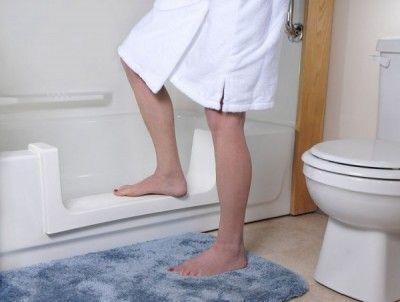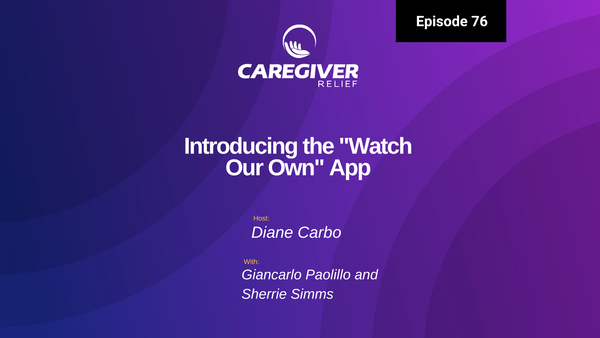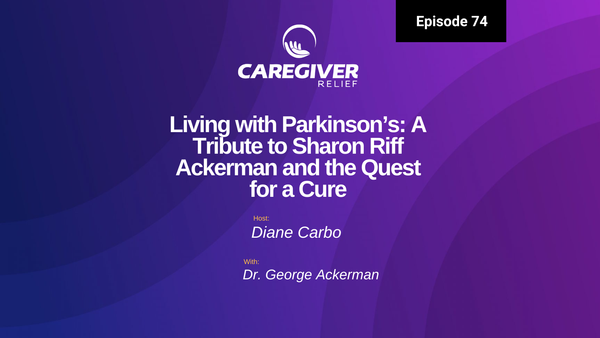Walk In Tub or a Walk In Shower Bathing a Person With Dementia?
If you are caring for a person with dementia, when the time comes and they need help bathing, will we need a walk in tub, instead of shower?

Linda asks,
If you are caring for a person with dementia, when the time comes and they need help bathing, will we need a walk-in tub instead of a shower?
Thank you,
Linda
Dear Linda,
This is a great question. I am going to give you a response from two different perspectives.
First, from a family caregiver perspective:
I love walk-in tubs for seniors; however, they are very expensive. Seniors with dementia, as they advance into the middle to late stages, will become increasingly resistant to bathing at all.
Many seniors with dementia become difficult to get to change clothes and bathe. You will need to learn how to provide care without turning it into a battle. I often tell family caregivers to shift their perspective on what "daily showers or baths" mean.
Aging skin is dry and tears easily. In nursing homes, senior residents are typically bathed only twice a week.
I know this might sound unpleasant to some, but let me explain. You can adapt the approach to bathing:
- Bathe in Parts: Break the bathing process into smaller parts over the day.
- Dry Shampoo: Use dry shampoo for greasy hair when a full wash isn’t possible.
- Warm Scented Cloths: Offer warm, scented face cloths several times a day to freshen up.
- Calming Techniques: Use calming aids, like a lavender spritz, to encourage relaxation.
I have provided you with more information on bathing individuals with dementia, which I hope you find helpful.
Warm Regards,
Diane Carbo RN
Here's more information for you ...
How to Bath Without a Battle
I use lemon scented face cloths when I want to lift the spirits or encourage them to be more alert. Of course, providing a warm soapy washcloth to wash hands before meals and after toileting. If your family member with dementia enjoys playing in water, give them a pan of warm soapy water, and let them soak their hands. Take time to dry the hands and do nail care. You can do the same with their feet.
If they will allow you to put their feet in a foot bath, or warm water soak their feet, do their nails , if you can. I recommend that you see if there is a home visiting podiatrist is available in your neighborhood. That can help you with managing the toe nails.
When your family member changes their clothes, or uses the toilet, this is your opportunity to provide intimate care. Remember, make it comfortable and use warm cloths. When they are sitting on the toilet, you can change tops, and wash under arms and put on deodorant. Wash between their legs, or ask them to do, it they are still able to follow directions.
Walk in Tub versus Walk In Shower
As an RN , I have been to many different memory care units. Some very high end Assisted Living programs with memory care units have invested in very nice walk in showers. The walk in tubs located in these memory care units do not get used. Persons with dementia would find it difficult to sit in while waiting for the water to fill the tub. Many have an irrational fear of small spaces.
Even a walk in shower can be challenging when bathing a person with dementia. I have a family that told me, they cannot get their mother in the shower and this has been a challenge for over a year.

Many seniors, even those with dementia have a fear of falling and do not want to get into a shower. I recommend that you ask for a home safety evaluation done by a physical or occupational therapist. This is is done through a Medicare certified home care agency. This evaluation for home safety needs an order from your doctor.
The home safety evaluation, can help you determine where to place grab bars or make your tub, or walk in shower safe to use. They can recommend a shower chair or a potty chair that will be able to use in the shower, or bath tub. This will depend on the home, and the space available.
If you are going to make home modifications, you may want to consult with a certified aging in place specialist. They can help you determine what changes can be made within your needs and budget.
I am also going to give you one more consideration to think about when you are discussing walk in tubs versus walk in showers. As a person with dementia progresses through the disease process, they will become incontinent of bowel and bladder. Using a walk in tub, will make cleaning your family member if they become incontinent while bathing. They will be left to sit in dirty water, as you wait for the water to empty the water out.
Walk in tubs have so many benefits to aging seniors.
A walk in shower can be as difficult to get a person with dementia in, as a walk in tub. The thing is, bathing can be a challenge, and you may go long periods of time, when you may not get them to go into any type of walk in shower, or walk in bathtub. That is when you, as a caregiver, must adjust to providing care in bits and pieces. Making sure you lotion the skin, to keep it hydrated. Choose your battles wisely. There are many challenges you will face as a caregiver daily.
Thank you for this great question. Please feel free to contact me with any other questions. I encourage other caregivers to share what they do to provide care.
Here are a few Expert Tips for Ensuring a Comfortable and Successful Shower or Bath for Someone with Dementia
Bathing can be a challenge when caring for someone with dementia. While some individuals may not mind it, others may show fear and resistance. Understanding the causes and implementing these tips can make bath time easier for both the individual and the caregiver.

Causes of Challenging Behaviors in Bathing:
Embarrassment: Privacy concerns can make bathing with someone else present uncomfortable and embarrassing.
Fear of Water: Traumatic incidents or anxiety can lead to a fear of water, especially showers for those accustomed to baths.
Lack of Understanding: Middle or later stage dementia can cause confusion and resistance due to not understanding the purpose of bathing.
Tips to Improve Bath Time:
Prepare in Advance: Have soap, shampoo, and a warm towel ready to ensure a smooth process.
Offer a Choice: Provide the option between a bath or a shower, considering the individual's preferences and comfort level.
Adjust the Time of Day: Honor the person's routine by finding out their preferred bathing time and stick to it.
Establish a Routine: Follow a consistent routine and consider having the same caregiver to maintain familiarity and comfort.
Ensure a Warm Room Temperature: Make sure the bathing environment is comfortable by keeping the room warm.
Encourage Independence: If possible, allow the person to wash themselves for a sense of dignity and empowerment.
Consider Same-Sex Caregiver: If privacy or inappropriate behavior is a concern, offer a caregiver of the same sex.
Provide Privacy and Comfort: Offer large bath towels or shower capes to enhance privacy and warmth.
Set the Tone with Music: Play preferred music to create a soothing atmosphere and potentially engage the individual.
Address Pain Relief: Consult with a physician to manage pain that may be contributing to resistance towards bathing.
Use Humor: Employ humor as a tool to reduce anxiety, increase comfort, and distract from the task at hand.
Create a Spa-Like Atmosphere: Enhance the environment by adding art, music, and even a towel heater to improve comfort.
Mention Doctor's Orders: Remind the individual that their doctor has recommended bathing, redirecting any frustration towards the physician.
Consider No-Rinse Products: Use no-rinse soap and shampoo to shorten the bathing process and reduce anxiety.
Choose Different Words: Use alternative phrases like "washing up" or "getting ready for the day" to appeal to individuals who may react negatively to specific words.
Seek Professional Help: Consider hiring an experienced home healthcare aide for a more comfortable and effective bathing experience.
Try Different Family Members: If one family member encounters resistance, another family member may succeed in assisting with bathing.
Sponge Bathing as an Alternative: If all else fails, consider sponge bathing as a compromise to still achieve cleanliness and hygiene.
By implementing these strategies, bath time can be a more positive and manageable experience for both individuals with dementia and their caregivers.
Our Resources section can help you find the information and tools that you need. We have courses, videos, checklists, guidebooks, cheat sheets, how-to guides and more.
You can get started by clicking on the link below. We know that taking care of a loved one is hard work, but with our help you can get the support that you need.
Click here to go to Resources Section now!
All of our guides, downloads, worksheets, Premium courses
Click Subscribe To Get Started.
You might also like this article:













